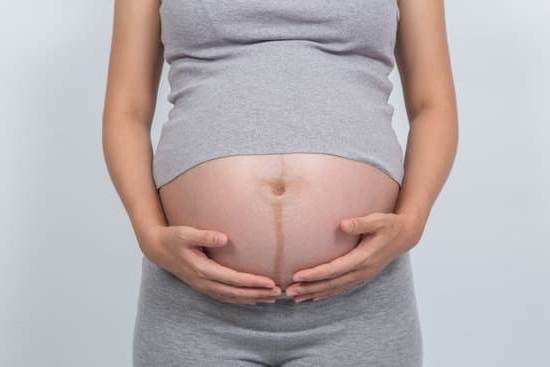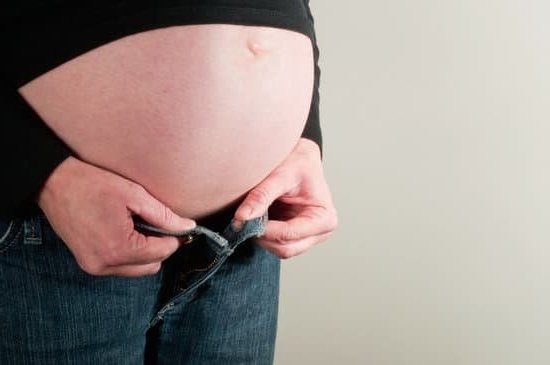Are you feeling unusually fatigued and wondering, “Is tiredness a sign of pregnancy?” Many women experience exhaustion as one of the early indicators of being pregnant. Understanding the various symptoms that accompany this significant life event can help you navigate this phase with more awareness and preparedness.
Fatigue is a common occurrence in everyday life due to various factors such as stress, lack of sleep, or an intense work schedule. However, when it comes to pregnancy, fatigue takes on a different dimension. The hormonal changes within the body during pregnancy can significantly impact energy levels, leading to feelings of constant tiredness or exhaustion.
During the early stages of pregnancy, many women report feeling exceptionally tired even after getting a full night’s rest. This fatigue is often attributed to the increased levels of progesterone in the body, which can cause drowsiness and make regular activities seem more challenging than usual. It is crucial for expectant mothers to recognize these signs and learn how to differentiate between typical fatigue and pregnancy-related tiredness for optimal health and well-being.
Understanding Fatigue and Its Causes
Fatigue is a feeling of extreme tiredness or exhaustion that can affect anyone, regardless of pregnancy. However, during pregnancy, fatigue may be more pronounced and commonly experienced by many women. Understanding the causes of fatigue in general can help shed light on why it may be particularly prevalent during early pregnancy.
Some common causes of fatigue outside of pregnancy include inadequate sleep, stress, poor nutrition, lack of exercise, and certain medical conditions. When it comes to pregnancy specifically, hormonal changes play a significant role in contributing to feelings of tiredness. Progesterone levels increase drastically during pregnancy, which can have a sedating effect on the body.
- Lack of sleep
- Increased hormonal levels
- Physical and emotional stress
- Changes in metabolism
While experiencing tiredness is common during early pregnancy due to hormonal fluctuations, not every woman will necessarily feel fatigued as a sign of being pregnant. Each woman’s body reacts differently to the changes happening within her body. Some women may feel energized throughout their pregnancies while others might struggle with persistent fatigue.
It is important to differentiate between regular fatigue and pregnancy-related tiredness. Fatigue associated with pregnancy often involves feeling unusually exhausted even after getting enough rest. Additionally, accompanying symptoms such as nausea, breast tenderness, frequent urination, and mood swings can also indicate that tiredness is indeed a sign of early pregnancy.
- Ensure you are getting adequate rest
- Eat a balanced diet rich in nutrients
- Stay hydrated and drink plenty of water
- Engage in gentle exercise like prenatal yoga or walking
By paying attention to your body’s signals and seeking proper care when needed, you can navigate through the challenges posed by fatigue during pregnancy effectively. If you are concerned about your energy levels or experiencing excessive tiredness that interferes with your daily life, do not hesitate to consult your healthcare provider for guidance and support. It is always crucial to prioritize your health and well-being throughout your pregnancy journey.
Is Tiredness a Common Symptom in Early Pregnancy?
Tiredness during pregnancy can be one of the earliest signs that a woman may notice, often occurring in the first trimester. Understanding whether tiredness is a sign of pregnancy or just regular fatigue can sometimes be challenging, but there are some key differences to look out for. Here are some factors to consider:
- Duration: While feeling tired or exhausted occasionally is normal, persistent and unexplained tiredness could be a sign of pregnancy.
- Hormonal Changes: The surge in hormones like progesterone during early pregnancy can contribute to feelings of fatigue as the body adjusts to supporting the growing fetus.
- Physical Symptoms: Alongside tiredness, pregnant women may also experience other symptoms such as nausea, breast tenderness, and frequent urination.
It is important for women who suspect they might be pregnant and are experiencing unusual levels of tiredness to take a home pregnancy test or consult with their healthcare provider. While tiredness alone is not a definitive sign of pregnancy, when combined with other symptoms and changes in the body, it could indicate early stages of pregnancy. It is always best to confirm any suspicions and seek appropriate medical advice if needed.
- Resting when feeling tired and not pushing oneself too hard physically can help manage fatigue during pregnancy.
- Staying hydrated and eating a balanced diet rich in nutrients can also support energy levels throughout the day.
- Engaging in light exercise like prenatal yoga or walking can boost circulation and provide an energy boost without overexerting oneself.
By paying attention to their bodies and seeking proper care, pregnant individuals can navigate through this period comfortably while ensuring both their health and that of their unborn child are prioritized. Remember, each person’s experience with tiredness during pregnancy may vary; thus, it’s crucial to listen to your body and seek guidance from healthcare providers whenever necessary.
Hormonal Changes and Their Impact on Energy Levels
Hormonal Fluctuations During Pregnancy
During pregnancy, hormonal changes play a significant role in the body’s functioning. One of the key hormones that impacts energy levels is progesterone. This hormone increases significantly during pregnancy to support the development of the placenta and prepare the body for sustaining the pregnancy.
However, elevated levels of progesterone can also contribute to feelings of fatigue and exhaustion. Additionally, other hormones like human chorionic gonadotropin (hCG) and estrogen can also play a part in making pregnant individuals feel more tired than usual.
Impact on Energy Levels
The surge in these hormones can affect the body’s metabolism and make it work harder to support both the mother and growing fetus. This increased metabolic activity often leads to feelings of tiredness in early pregnancy. Furthermore, as the body adjusts to these hormonal changes, it may require more rest and sleep to cope with the demands of pregnancy. It is essential for pregnant individuals to listen to their bodies and prioritize self-care during this time.
Distinguishing Pregnancy Tiredness From Regular Fatigue
It is crucial for pregnant individuals to differentiate between pregnancy-related tiredness and regular fatigue caused by external factors such as stress, poor sleep habits, or underlying health conditions. If fatigue persists despite getting adequate rest and following a healthy lifestyle, it may be a sign that further evaluation is needed. Consulting a healthcare provider can help rule out any underlying issues and ensure optimal care for both the mother and baby throughout the pregnancy journey.
By understanding how hormonal changes impact energy levels in pregnancy, individuals can better navigate their symptoms and seek appropriate support when needed. Proper self-care techniques, such as maintaining a balanced diet, staying hydrated, engaging in gentle exercise, and getting ample rest can help manage tiredness during pregnancy effectively.
Remember that each person’s experience with fatigue during pregnancy is unique, so listening to your body and seeking guidance from healthcare professionals is tiredness a sign of pregnancy recommended for overall well-being.
How to Differentiate Pregnancy Tiredness From Regular Fatigue
Understanding Pregnancy Tiredness
Pregnancy tiredness, also known as fatigue, is a common symptom experienced by many women in the early stages of pregnancy. It is often described as an overwhelming feeling of exhaustion that can make daily activities challenging. This type of tiredness is not solely due to physical exertion or lack of sleep but is mainly attributed to hormonal changes occurring in the body.
Distinguishing Pregnancy Tiredness From Regular Fatigue
One key factor that sets pregnancy tiredness apart from regular fatigue is the sudden onset and intensity of the feeling. Pregnant women may find themselves needing more rest than usual and experiencing difficulty staying awake even after getting a full night’s sleep. In contrast, regular fatigue may be linked to factors such as stress, poor nutrition, or lack of physical activity.
Signs to Look Out For
Apart from extreme tiredness, other symptoms that may indicate pregnancy include nausea or morning sickness, breast tenderness, frequent urination, and mood swings. If you are consistently feeling exhausted and notice any other signs of pregnancy, it might be worth taking a home pregnancy test or consulting with your healthcare provider to confirm whether you are pregnant.
Understanding how to differentiate between pregnancy tiredness and regular fatigue can help you better manage your energy levels during this crucial time. It’s essential to listen to your body and seek medical advice if you have any concerns about your overall health and well-being during pregnancy. Remember that every woman’s experience is unique, so what works for one person may not necessarily work for another.
Tips for Managing Tiredness During Pregnancy
Tiredness, also known as fatigue, is a common symptom experienced by many women during pregnancy. This feeling of exhaustion can be attributed to various factors such as hormonal changes, increased metabolic demands, and the body’s preparation for nurturing a growing fetus. It is essential to understand that feeling tired during pregnancy is not uncommon and is often considered a normal part of the journey to motherhood.
One of the main reasons for tiredness in early pregnancy is the surge in progesterone levels. This hormone plays a crucial role in maintaining a healthy pregnancy but can also contribute to feelings of sleepiness and fatigue. Additionally, the body’s increased blood production and circulation to support the developing baby can lead to a decrease in energy levels for expectant mothers.
To effectively manage tiredness during pregnancy, it is important for women to prioritize rest and relaxation. Getting an adequate amount of sleep each night, taking short naps during the day, and listening to your body when it signals the need for rest are all crucial steps in combating fatigue. It is also recommended to maintain a healthy diet rich in nutrients, stay hydrated, and engage in light physical activity to boost energy levels.
In some cases, extreme or persistent tiredness can be a sign of underlying issues such as anemia or thyroid disorders. If you are concerned about the intensity of your fatigue or if it significantly impacts your daily activities, it is advisable to consult with your healthcare provider. They can help determine if there are any underlying medical conditions contributing to your tiredness and provide appropriate guidance on how to manage it effectively throughout your pregnancy.
| Key Points | Details |
|---|---|
| Causes of Tiredness | Hormonal changes, increased metabolic demands, body preparing for nurturing fetus |
| Managing Tiredness | Prioritize rest, get adequate sleep, maintain healthy diet and hydration |
| Consulting Healthcare Provider | If fatigue is extreme or persistent, check for underlying medical conditions |
When to Consult a Healthcare Provider About Fatigue During Pregnancy
Fatigue is a common symptom that many pregnant women experience, but it is important to know when it may indicate a more serious issue. While tiredness is often expected during pregnancy due to hormonal changes and increased energy requirements, extreme fatigue or persistent exhaustion can sometimes be a sign of underlying health concerns.
If you find yourself feeling excessively tired to the point where it interferes with your daily activities or if you are experiencing severe fatigue along with other concerning symptoms, it is essential to consult a healthcare provider.
One of the key factors in determining when to seek medical advice for fatigue during pregnancy is the severity and duration of your tiredness. Feeling a bit more exhausted than usual in the early weeks of pregnancy is generally considered normal, but if you are struggling to stay awake even after getting adequate rest or if your fatigue is impacting your ability to function normally, it could be an indicator of a health issue that requires attention.
Additionally, if you notice sudden and extreme tiredness coupled with symptoms such as dizziness, fainting, chest pain, shortness of breath, or palpitations, do not hesitate to contact your healthcare provider immediately.
Pregnancy should be a time of joy and anticipation, but dealing with constant tiredness can take a toll on your physical and emotional well-being. Your healthcare provider can help determine the underlying causes of your fatigue and provide appropriate guidance on how to manage it effectively. By seeking timely medical advice when needed, you can ensure a healthier and more comfortable pregnancy journey for both you and your baby.
| Key Points | Importance |
|---|---|
| Severity and Duration of Tiredness | Indicator of health issues |
| Warning Signs | Symptoms like dizziness or chest pain |
| Seeking Medical Advice | Ensure healthier pregnancy journey |
Real-Life Experiences
During early pregnancy, many women may experience fatigue as one of the first signs that they are expecting. This feeling of tiredness is often linked to hormonal changes occurring in the body as it adjusts to support a developing fetus. For some women, fatigue can be overwhelming and impact their daily activities. It’s important to understand that feeling tired is a common symptom during pregnancy, but it can vary in intensity from woman to woman.
One way to differentiate between normal fatigue and pregnancy-related tiredness is the sudden onset of exhaustion without any apparent reason. Women who are pregnant might find themselves needing more rest than usual, even if they have not changed their routine significantly. Additionally, pregnant women may feel more fatigued during the first trimester due to increased levels of progesterone, which can have a sedative effect on the body.
Managing tiredness during pregnancy can be challenging but there are various strategies that can help alleviate some of the symptoms. Simple lifestyle changes like getting enough rest, eating well-balanced meals, staying hydrated, and incorporating light exercise into your routine can make a difference.
It is also essential to listen to your body and take breaks when needed. However, if fatigue is persistent or accompanied by other concerning symptoms such as dizziness or shortness of breath, it is advisable to consult a healthcare provider for further evaluation and guidance.
Conclusion
In conclusion, it is evident that tiredness can indeed be a prominent sign of pregnancy for many women. The hormonal changes that occur during early pregnancy often lead to fatigue, making it a common symptom alongside other well-known signs such as nausea and breast tenderness. It is crucial for individuals to pay attention to their bodies and recognize when tiredness may be more than just regular fatigue.
As highlighted throughout this article, differentiating between pregnancy-related tiredness and typical exhaustion can sometimes be challenging. However, listening to your body and noting any unusual patterns or symptoms can help in identifying potential signs of pregnancy. Seeking medical advice from a healthcare provider is essential if you suspect you might be pregnant or are experiencing persistent fatigue that is affecting your daily quality of life.
Ultimately, every woman’s experience with pregnancy fatigue can vary, as shown by the real-life stories shared in this article. While some may find relief through simple lifestyle adjustments or relaxation techniques, others may require additional support or medical intervention. Regardless of your individual journey, remember that taking care of yourself and seeking professional guidance when needed are crucial steps towards a healthy pregnancy and overall well-being.
Frequently Asked Questions
How Early in Pregnancy Do You Feel Tired?
During the early stages of pregnancy, many women begin to feel tired as early as a few weeks after conception. This fatigue is often caused by hormonal changes in the body, specifically increased levels of progesterone. The body’s metabolism also increases during pregnancy, leading to feelings of exhaustion.
What Are the 1 Week Symptoms of Pregnancy?
In the first week of pregnancy, some common symptoms may begin to appear. These can include breast tenderness, fatigue, mild cramping, heightened sense of smell, and mood swings. However, not every woman will experience these symptoms so early on as pregnancy symptoms can vary greatly from person to person.
What Was Your First Sign of Pregnancy?
The first sign of pregnancy for many women is a missed period. Other common early signs can include nausea or vomiting (morning sickness), increased frequency of urination, tender or swollen breasts, and food aversions or cravings.
Some women may also notice light spotting known as implantation bleeding around the time their period is due. Each woman’s experience with the first signs of pregnancy can be unique and different from others’.

Welcome to my fertility blog. This is a space where I will be sharing my experiences as I navigate through the world of fertility treatments, as well as provide information and resources about fertility and pregnancy.





